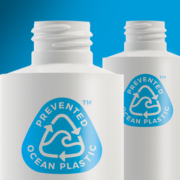However, Spectra is disappointed to discover that this year’s theme is Planet versus Plastics, a title we believe provokes an unbalanced and unhelpful perspective on the many complexities surrounding plastics, their impacts and their benefits.
Similarly, the movement’s unwavering commitment to end plastics for the sake of human and planetary health illustrates a one-dimensional stance that fails to consider the innumerable environmental and societal advantages plastics offer when used responsibly.
As part of its focus, the Earth Day movement calls for a 60% reduction in the production of ALL plastics by 2040. However, we believe this is a counter-productive ambition that fails to recognise that replacing plastics with other materials, at any cost, could harm the environment in many cases.
Indeed, due to plastics’ unique characteristics, there are often no suitable alternatives for many applications, and substituting plastics with other materials can lead to increased greenhouse gas emissions.
Here, we outline the four primary goals set out by Earth Day to achieve a 60% reduction in plastic production, along with our response to each point.
Goal one:
Promote widespread public awareness of the damage done by plastic to human, animal, and all biodiversity’s health and demanding more research be conducted on its health implications, including the release of any and all information regarding its effects to the public;
Spectra’s view:
We agree that education is vital in outlining the environmental impact of plastic when used irresponsibly. However, it is also essential to note that plastics offer countless societal benefits and play a crucial role across many industries, including healthcare, transportation, construction, communication technology and food preservation.
For example, plastics are essential in the healthcare industry, as they are used in medical devices, protective equipment, and packaging. Banning plastics without considering their critical functions could harm public health and safety. Indeed, the benefits of using plastics in healthcare often outweigh the potential risks when appropriately managed. Additionally, extensive research already exists on plastic’s health implications and continuous studies are being conducted to ensure its safety.
The health benefits of plastics:
- Facilitates clean drinking water supplies through water pipes and containers
- Essential in the medical field for devices, equipment and packaging, ensuring hygiene and sterility
- Provides moisture barrier, mechanical strength, flexibility and softness in medical applications
- Enables the production of necessary healthcare supplies
- Medical equipment made from plastics enhances patient care and treatment outcomes
- Plastics are used in prosthetics and medical devices, improving hygiene standards.
- Plastic packaging prevents food spoilage, ensures food safety, and extends shelf life whilst reducing food waste.
Did you know?
According to a report by Plastics Europe, the healthcare sector accounts for 6% of global plastic usage, highlighting its crucial role in saving lives and facilitating medical advancements. This statistic emphasises the significant impact of plastic in the healthcare industry. [Source]
Goal two:
The rapid phasing out of all single-use plastics by 2030 and achieving this phase-out commitment in the United Nations Treaty on Plastic Pollution in 2024;
Spectra view:
We agree that single-use plastic should be reserved only when strictly necessary. However, there should be a clear distinction between single-serve applications used for one-time tasks and disposal versus single-use applications that focus on individual portions and can often be sustainable.
In countries without clean running water, single-use plastic water bottles are often the only option for safe and convenient hydration. In emergencies, they can contribute to public health by preventing waterborne diseases. However, while these benefits are significant, they must be carefully weighed against the misuse of plastic, which can impact the environment. Balancing the need for clean water access with sustainable practices is essential for a more environmentally friendly approach to water consumption in these regions.
Instead of a blanket ban on all single-use plastics, a more practical approach would be to focus on improving waste management systems and encouraging and educating on the benefits of recycling plastics. Equally, abruptly phasing out single-use plastics by 2030 could have unintended consequences on industries and livelihoods dependent on these materials.
Research by the Ellen MacArthur Foundation found that enhancing plastics’ collection and recycling rates can significantly reduce their environmental impact. [Source]
Not all single-use plastics are bad:
- Single-use plastics provide convenience in everyday life, such as food packaging, reducing food waste and significantly contributing to rising CO2 emissions.
- They provide clean water solutions in regions without freshwater availability.
- They help maintain hygiene standards by providing sealed and sterile packaging for food, medical supplies, and sanitation products.
- Single-use plastics can reduce the risk of contamination and the spread of diseases by enabling single-use items in healthcare settings.
- They are often more affordable than alternative materials, making products more accessible to a wider range of people.
- Single-use plastics are often durable, ensuring that items like medical supplies or certain packaging materials remain intact during transportation and use.
- Due to their lightweight and low processing temperatures, they reduce the carbon footprint for packing and transporting many everyday items versus the alternatives.
Did you know?
In September 2022, Spectra committed to using Prevented Ocean Plastics (POP) in its recycled plastic supply chain. The POP programme explicitly identifies at-risk regions that lack established waste recycling infrastructures, providing proactive preventative measures that retrieve plastic bottles before they enter the water and impact the environment. The POP programme offers a global recycling initiative that helps thousands of workers worldwide enjoy legitimate and structured employment with reliable incomes, workers’ rights and safe, ethical working practices in at-risk regions.
Since making our commitment, Spectra has brought in nearly 900 tonnes of the material, which equates to almost 50 million plastic bottles recovered from at-risk regions.
Goal 3:
Demanding policies to end the scourge of fast fashion and the vast amount of plastic it produces and uses;
Spectra’s view:
The impact of fast fashion’s plastic consumption is a concern, and we believe there are some ways to promote sustainability and ethical fashion choices. These could include purchasing once-loved second-hand items, clothing swaps, opting for better quality pieces that last longer, upcycling garments, or supporting sustainable brands.
While addressing the plastic waste generated by fast fashion is crucial, eliminating plastics from this industry may not be feasible in the short term. However, collaborative efforts to innovate sustainable packaging and materials and promote circular fashion practices can provide a more realistic and impactful solution.
Sustainable solutions for the fast fashion industry:
By incorporating some of the following practices, the fast fashion industry can benefit from the advantages of plastics while also contributing to environmental sustainability
- Using recycled or recyclable garments can help reduce waste in the fashion industry. These materials can protect the clothing during transportation and storage while being eco-friendly.
- Plastics can create durable and long-lasting accessories such as buttons, zippers, and buckles in fast fashion items. This can increase the lifespan of the clothing, reduce the frequency of replacements, and, in turn, lower the overall environmental impact.
- Some innovative recycled plastic textiles, such as polyester from recycled plastic bottles, can be used in fast fashion production. These textiles provide a sustainable alternative to traditional materials without compromising quality or style.
- Plastics can enable the development of efficient manufacturing processes, helping to streamline production in the fast fashion industry. This can reduce energy consumption, waste generation, and overall environmental footprint.
.
Did you know:
The Ellen MacArthur Foundation estimates that transitioning to a circular fashion economy could save over $100 billion in environmental costs annually. [Source].
Sustainable Apparel Coalition highlights the potential for reducing environmental impact by adopting sustainable sourcing and manufacturing processes. [Source]
Goal four:
Investing in innovative technologies and materials to build a plastic-free world.
Spectra’s view:
In our perspective, rather than striving for a world devoid of plastic, focusing on technological advancements to enhance plastic recycling, create more sustainable biodegradable options and improve waste management systems can pave the way for a sustainable future. Plastics can offer significant value when used responsibly within a circular economy model.
Directing efforts towards innovations such as chemical recycling, bioplastics, and waste-to-energy technologies may prove a more sustainable use of plastics. Additionally, plastic recycling rates could be improved if the Government implemented Deposit Return Schemes such as those successfully rolled out in other countries. Furthermore, simplifying the UK’s fragmented kerbside waste management systems could help minimise consumer confusion and also result in better recycling rates. Similarly, Spectra believes raising public awareness of the value of plastics would also help.
A world without plastics:
- Renewable Energy: Plastics are essential for clean energy solutions like wind turbines, solar panels, and electric vehicles, reducing greenhouse gas emissions and improving resource efficiency
- Building & Construction: Plastics are used in building insulation, corrosion-resistant plumbing, energy-efficient windows, and weather-resistant roofing, enhancing energy efficiency and durability in construction.
- Health: Plastic-based medical products, from protective equipment to innovative 3D-printed organs, are pivotal in modern healthcare, advancing medical treatments and technologies.
- Automotive: Plastics contribute to lighter vehicles, better fuel efficiency, and durable components like airbags, door panels, and battery housings, supporting energy efficiency and e-mobility.
- Agriculture & Food: Plastics aid in agricultural films for crop protection, water conservation, and reducing food waste through packaging that extends shelf life and preserves freshness.
- Electrical & Electronics: Plastics protect electronic components, create lightweight electronics, and support the power infrastructure necessary for renewable energy expansion.
Did you know?:
In 2021, Spectra commissioned an independent Life Cycle Analysis (LCA) to provide customers with scientific like-for-like comparisons on the environmental impact of HDPE plastic, PET plastic, glass and aluminium containers. The extensive report concluded that both plastic products presented less environmental harm than their glass and aluminium counterparts. [Source]
In conclusion
A balanced and strategic approach is essential when addressing society’s complicated relationship with plastics. Rather than opting for outright bans, investment in innovative technologies, promoting sustainable practices, and a valued acknowledgement of the critical role of plastics in vital sectors can lead us towards a more sustainable future.
Through collaboration, awareness and aligning environmental goals with the practical needs of society, we can navigate towards more sustainable and responsible use of plastics while ensuring the well-being of both the planet and its inhabitants.
Spectra believes a holistic and balanced approach is the only way for society to live in harmony with a material that when used irresponsibly, can impact the environment but, when respected and valued, can provide societal benefits beyond our imagination.






